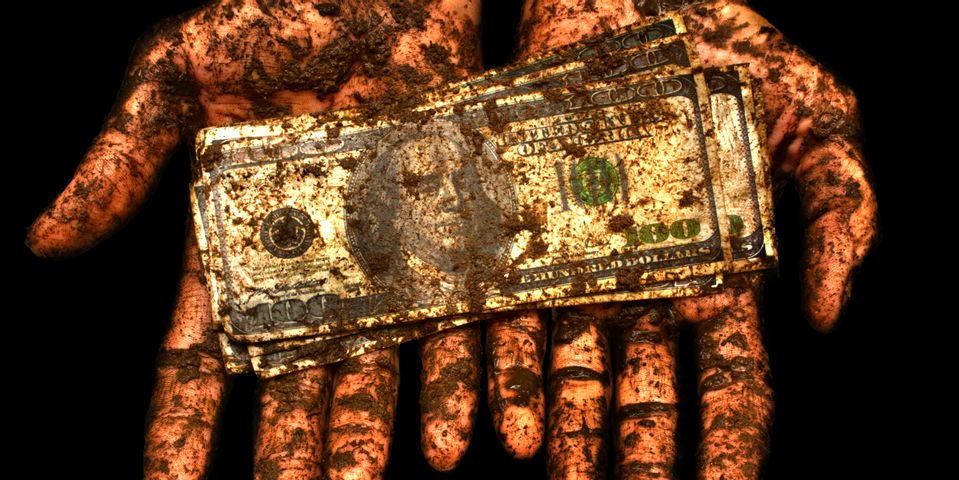3,000 Reasons To Use Your Debit Card

Cash. We need it but do you really need to handle it? Have you ever thought of what it is you're touching when you hold a $5 bill, or when the cashier gives you a handful of change? Chances are, they've changed hands many, many times.
Coins last a long time. The average lifespan of a coin is around 30 years, but some can still be in circulation after 50 years or more. They have many owners, being passed on over and over, and never get cleaned.
Paper money doesn’t last as long. A dollar bill lasts about five years. It's made up of 25% linen and 75% cotton, so it's not really paper at all. It's cloth. However, because the material is also absorbent, it becomes a host to germs and bacteria.
What is on your money? Each dollar bill carries roughly 3,000 types of bacteria on its surface. Common microbes found include the ones that cause acne and other skin problems.
Almost every paper money you touch contains some sort of bacteria, a virus, or a microorganism that causes disease. Now, what kind of disease you come into contact with becomes your misfortune.
Of the many studies done, the following dangerous microorganisms were found:
- Streptococcus
- E. coli
- Salmonella Enterica
- Staphylococcus Aureus
- MRSA
- Proteus
It's filthy. It's teaming with bacteria. It's infested with germs. And it really can make you sick. Think about depositing that cash and use a debit card instead. You won’t have to handle that dirty money as often and keep your money safe in your account.
If you’re interested in getting a debit card, Hawaiian Tel Federal Credit Union can help. They have branches throughout Oahu and one on Maui for your convenience. Since chartering 81 years ago, this credit union has been committed to helping Hawaii residents achieve their financial dreams. Follow their Facebook, Twitter, and Instagram for news and updates, or call the credit union at 832-8700 on Oahu or toll-free at (800) 272-5255 with any questions.
About the Business
Have a question? Ask the experts!
Send your question

